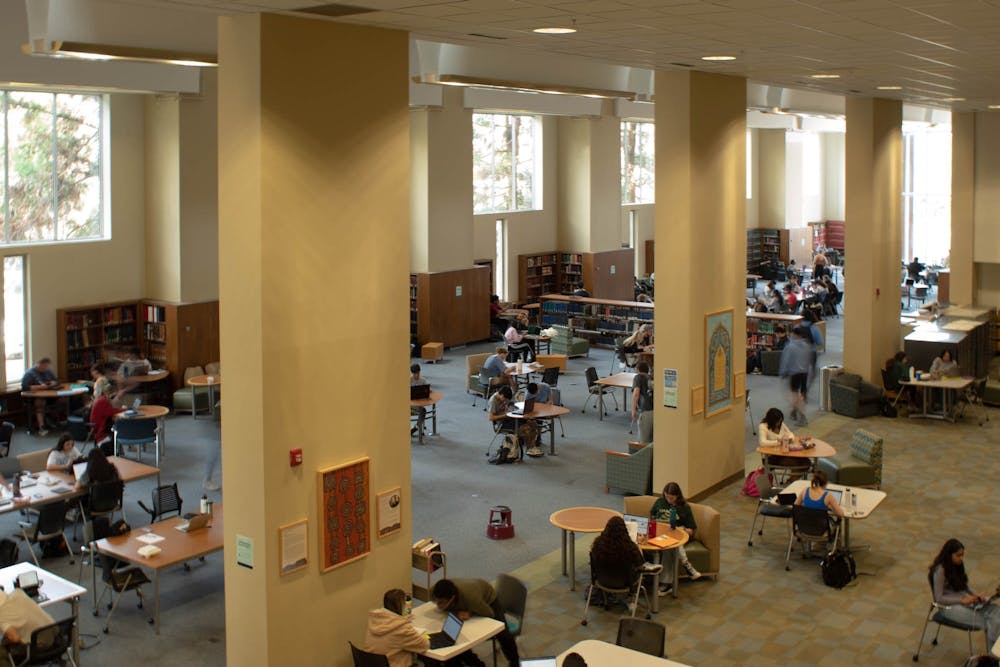Every Friday and Saturday afternoon, a crowd of dejected students leaves Davis Library in search of their next study spot. On these days, Davis closes at 5 p.m. The Undergraduate Library also shuts its doors at 5 p.m. on Fridays, and is closed entirely on Saturdays.
I do my most intense studying on weekends, and based on the numbers of students with lost looks in their eyes and nowhere to go after Davis officially closes for the day, it's clear we need at least one library option for the late study sessions over the weekend.
Really, we should have at least one 24/7 access option. Previously, the Undergraduate Library was open all day, every day. Before 2020, there was even a known “walk of shame” of students leaving for the UL at Davis’ 2 a.m. close.
Yet, during the COVID-19 pandemic, hours and funding for UNC Libraries were cut. Funding was restored in 2022, but overnight hours have yet to return.
A 5 p.m. close is unjust for a school that claims to be one of the top public universities in the nation, at which we pay each semester to attend.
Rumors which shift the blame to a lack of student workers available for working late-night hours have circulated among the undergraduate population. But if that’s the case, why doesn’t UNC resort to hiring full-time employees who don’t also attend the school to fill these roles? It’s no surprise students who have class the next morning are not going to be available to work a 2 a.m. to 8 a.m. shift.
Many suggest dorm lounges are equal alternatives for students to utilize, but for those who live off-campus, this is not a viable option. The Student Union provides another study space, yet on weekends when the libraries are closed, the Union is typically hosting events not quite suited for quiet studying.
Besides, it’s not unusual for students to feel they are better able to focus in the unique study space of a library rather than a bustling coffee shop or at home with loud roommates and neighbors. Particularly sensitive to this are those who suffer from neurodevelopmental disorders such as ADHD, a reality for a large number of students.
Student access to a 24/7 on-campus library would bring about an array of benefits that include the ability to accommodate all students’ vastly different schedules. The University should consider this a priority, as it is already so for those who have jobs, extracurricular activities or other responsibilities that relegate them to studying at night and on weekends. Later hours cater to these students and allow them to maximize their library usage during their most productive times.




